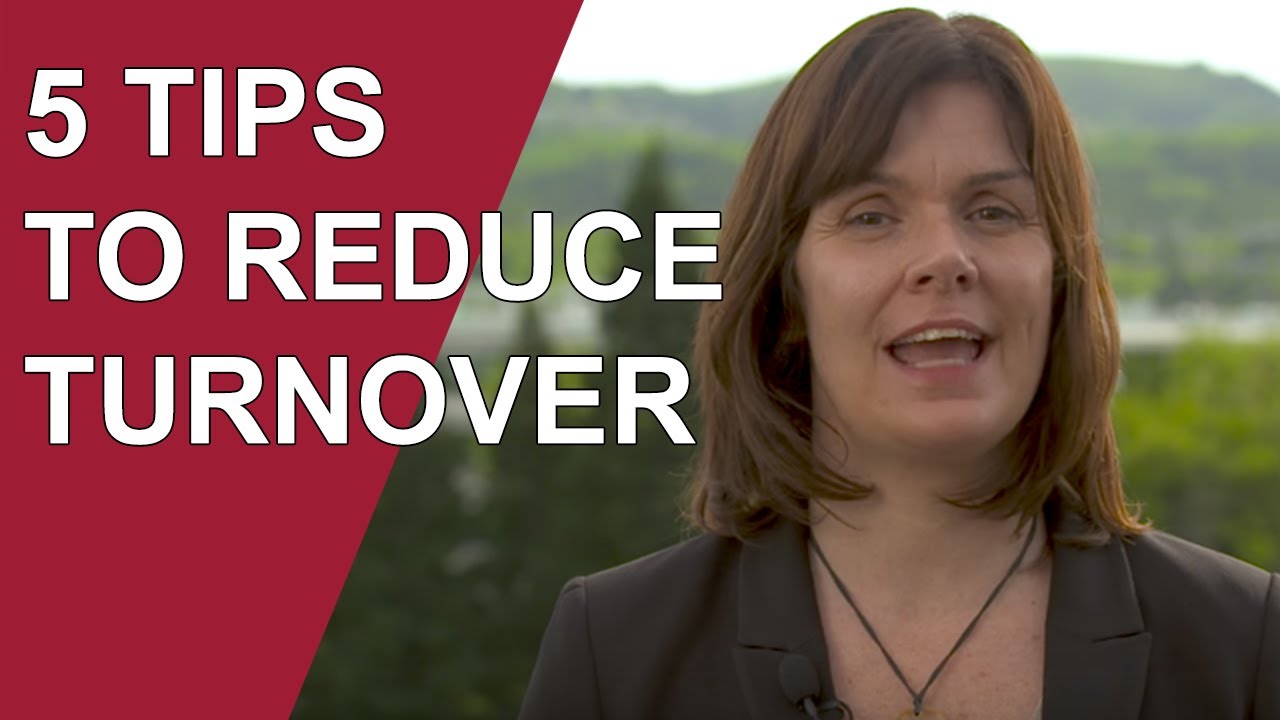Before you start to see signs that your finance and accounting folks are looking to leave, consider these eight suggestions for retaining talent in your workplace.
1. Offer a sense of ownership and autonomy
Depending on your company, you could reward your top-performing employees with stock options, but you can also give them a sense that helping the company thrive benefits them as much as it does you. You can achieve this by placing more responsibility (and, therefore, trust) in their hands when it comes to decision making.
Accounting job training and professional development can go a long way to promoting employee retention in this field. Providing staff members with a chance to work on special projects is helpful, too.
2. Have career path discussions
Sit down with your employees periodically for career path discussions, which are free, easy to implement and available to every manager. This should be a confidence-building situation for the employees and separate from annual performance reviews.
Help them to set goals for advancement in your firm, identify specific positions and milestones, and define steps to achieve them. Point out any skills gaps and ways to address them. Consider offering tuition reimbursement or paying for continuing education, accounting certification courses, professional conferences and memberships. Determine if there's anyone in your organization who could serve as a mentor.
Close the conversation by asking about any concerns they have and how else you can help. Set up times to check in on their development and steps they’re taking to reach the next rung on the career ladder.
3. Make work more convenient
Even to a dedicated employee, work can sometimes be viewed as an obstacle to other aspects of life. You can relieve this feeling by being flexible with work hours when obligations come up in your employee's personal life.
From alternate working hours to telecommuting, some of the most effective retention strategies involve giving employees options to excel professionally while maintaining a healthy work-life balance. Flexibility in scheduling may well prove to be the deciding factor when your best employee chooses to stay rather than look for another job.
Financial leaders surveyed for Robert Half's 2018 Benchmarking the Accounting & Finance Function said they are taking more time to understand what professionals want from their careers and the company, and they are making a point to promote work-life balance.
4. Show appreciation for their efforts
Expressing gratitude to valuable employees can be an easy and effective way to keep them motivated. Top employees might start to feel taken for granted if they think they’re just being lumped in with everyone else. Why should they perform on a higher level if no one is going to notice?
You don’t have to hand out plaques or expensive awards, but you could praise someone during a staff meeting, send an appreciative email or give some employee recognition for a job well done.
As Ky Kingsley, vice president of Robert Half Finance & Accounting, says, "Even a simple thank you can go a long way to retaining a top performer."
5. Step up succession planning
Succession planning is critical whatever size your organization may be. Whether a key leader retires or there’s an unexpected absence, have a clear plan laid out to maintain workplace morale, along with efficient operations. A solid course of action shows your team they can trust their leaders to be prepared for any scenario.
"Giving star employees the opportunity to be groomed for future management roles is important," Kingsley says.
Ask them whether they’re comfortable taking on new tasks and are willing to step in and take on bigger roles. It’s possible you could identify your future leaders during this process.
6. Reward performance with salary increases
Losing your best employee can often be avoided with an increase in salary or a reward of employee perks and benefits. Review the salary of your best employee and see if an increase is in order. Consult Robert Half’s Salary Guide for Accounting and Finance to learn more about compensation trends.
"Money isn't everything, but it certainly helps," says Kingsley. "Make sure to regularly evaluate compensation."
View the Salary Guide for Finance and Accounting Professionals now.
7. Keep your finger on the pulse of the office
Everyone has ups and downs at work, but how often do you ask yourself: Are your best workers still having fun on the job? Do they still seem to be in tune with the company culture? Does your employee’s body language convey ease or strain? If your best team member used to arrive with a smile but now seems happier when leaving, for example, it could be a sign that the anticipation of what lies ahead now holds more excitement than the current work environment.
8. Take an employee to lunch
Make an informal lunch date and see where the conversation goes. You may not learn any specifics, but you’ll likely get a better sense of the person’s job satisfaction. It’s also possible your lunch-mate may take this out-of-the-office opportunity to confide in you and even ask your advice on what to do next. Be ready for whatever comes up, from lighthearted talk about entertainment or sports to a serious discussion about career moves.
When all is said and done, you can’t always prevent your top performers from leaving, if that’s what they really want to do. But you can lessen the likelihood of that happening through a strong employee retention effort and simple engagement.
When you try to retain employees who rank among your top talent, you're not just keeping your best and brightest. Other workers may be motivated, too, by seeing success and hard work rewarded, and, as a result, they may step up their own efforts. These techniques have the potential to create a positive snowball effect on your entire company.
Have you lost good employees at your company and need to replace them?








